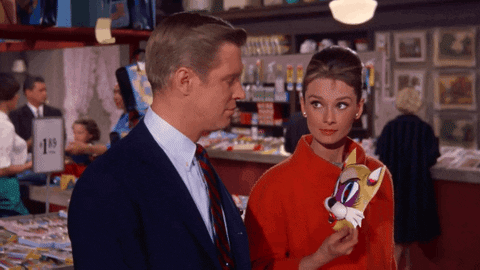A surprising quirk of mask-wearing behavior
Plus, how memories distort our view of time
“It's important to recognize that these beliefs and values can affect you even if you consciously reject them.” – psychologist Ryan Brown
BRAIN WAVES
Too hot to handle. We like to think that the decisions we make are guided by reason, logic and science. But when it comes to mask-wearing, a new study has found that people also rely on . . . how hot they think they are. Researchers at Seoul National University asked more than a thousand people to evaluate their own facial appearance and then also asked them how likely they were to wear masks that day. “Individuals with high self-perceived attractiveness were less willing to wear a mask,” the study reported, because they thought wearing a mask took away from their attractiveness. This behavior also depended on the environment, though. People who thought they were good-looking were more likely to unmask during a job interview than, say, walking the dog. “These findings suggest that individuals are highly aware of the benefits of being physically attractive during the recruitment process,” the paper said. Still, in all environments, the hotties were more likely to ditch the mask.
What is time? If you felt that time flew by during the pandemic, you’re not alone. If you felt that time slowed down during the pandemic, you’re also not alone. In a new study conducted in the United Kingdom during the first year of the lockdown, researchers found that the vast majority of study volunteers —80 percent —reported feeling distortions in time. But those distortions didn’t look the same. Older and more socially isolated people felt that time slowed down, while younger, more active people felt it had moved faster. In an interview with the New York Times, psychologist Ruth S. Ogden explained that these perceptions tend to reflect our well-being; people experiencing depression feel like time is moving more slowly, for instance. Interestingly, our memories also influence how we perceive time. Ogden explained that “our brain just looks back and says, Well, how many memories did we make?” She said, “When you have this really rich memory, richer than you would normally get in a 15-minute period of your life, that’s going to trick you into thinking that it was long.”
What kind of world is this? As you move through the world, it’s inevitable that your way of seeing things won’t always align with the people around you. Our beliefs about the world can cause conflict, but we can also use this knowledge to live happier and more harmonious lives. Listen to learn more.
ON THE HIDDEN BRAIN PODCAST
March 20: Stories help us make sense of the world, and can even help us heal from trauma. They also shape our cultural narratives, for better and for worse. This week, we revisit a favorite 2021 conversation with psychologist Ryan Brown, who explores the phenomenon of “honor culture” and how it dictates our beliefs and behaviors.
ON THE MY UNSUNG HERO PODCAST
March 21: When Mike Huddleston fell on the sidewalk, he wasn't able to get up on his own. Then out of nowhere he heard a voice in his ear, saying, "What can I do to help?".
Don’t forget to send us the story of your unsung hero! Record a voice memo on your phone and email it to myunsunghero@hiddenbrain.org.
MIND GAMES
There is a group of people in a room. Each person is wearing a birthday hat that is either orange or indigo. Each person can see everyone else’s hat but their own. One person shouts, "If you can see at least 6 orange hats and at least 6 indigo hats, raise your glass" Exactly 12 people raise their glasses. How many people are in the room?
LAST WEEK’S PUZZLE
A girl was ten on her last birthday. She will be twelve on her next birthday. How can this statement be true?
The answer: Today is her 11th birthday
FROM THE TWITTERATI…
A MOMENT OF JOY
Congratulations to the Pickle family.
Have an idea for Hidden Brain? A story you want to share with us? Send an email to ideas@hiddenbrain.org. And if you’d like to support our work, you can do so here. Listen to us on Spotify, Apple, Amazon Music or your favorite podcast platform.






